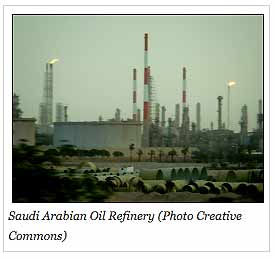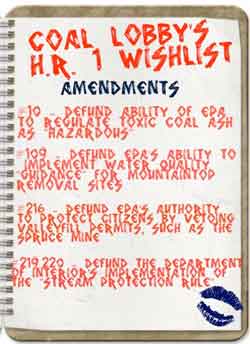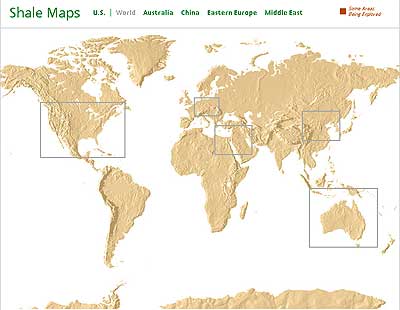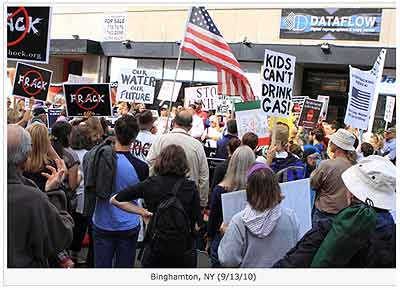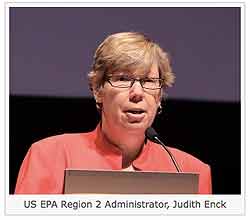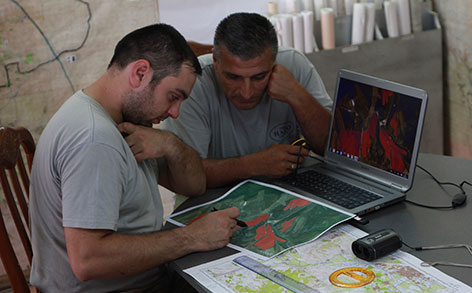Biblio
Wikileaks has embarrassed the U.S. and a member of the House Homeland Security Committe, Candice Miller (R-Mich) has said, "It is time that the Obama administration treats WikiLeaks for what it is — a terrorist organization whose continued operation threatens our security."
I propose that this story about peak oil is a leak fed by the U.S. to drive up the price of oil in the long term.
It is the effect of oil consumption on our environment, not our economy, that is best considered around our mashup meanderings of this story. The toll that greenhouse gases are taking on human health and climate change has, by some accounts, already killed millions of children worldwide. Even is there were an endless supply, burning oil and gas has serious health effects and while scientists and economists trade models, the innocent suffer outside the lens of for-profit media. (Neil Zusman, 2011-02-19).
This report about a Guardian article by Anneneberg | USC introduces us to a lively source of student journalism.
The world may run out of fossil fuels far earlier than expected and experience a climb in the price of oil, as data in newly leaked WikiLeaks cables suggest that Saudi Arabia has fewer oil reserves than previously believed.
The latest confidential cables to be released come from the American embassy in Saudi Arabian capital Riyadh, and claim that Saudi oil reserves were overstated by as many as 300 billion barrels, or nearly 40 percent of its actual reserves.
The former head of exploration at Saudi oil monopoly Aramco, Sadad al-Husseini, stated in the classified cables that “peak oil” – the point at which global production and, thus, consumption of oil reaches its highest possible level – may come as early as 2012.
Read between the lines, see these links on Fracking Resources Guide:
Climate Co-benefits and Child Mortality Wedges | Fracking Resource Guide.
The Deep Hot Biosphere : The Myth of Fossil Fuels
Probe Earth's Interior with Advanced Radiation Sources
Center for Dark Energy Biosphere Investigations (C-DEBI)
See: Appelbaum, Binyamin. “A Life’s Value May Depend on the Agency, but It’s Rising.” The New York Times 16 Feb. 2011. Web. 17 Feb. 2011.
See also: Associated Press. "How to value life? EPA devalues its estimate: $900,000 taken off in what critics say is way to weaken pollution rules." 2008-07-10.
One of the most glaring omissions during Obama’s State of the Union address was the acknowledgement of climate change. As the Senate and House return to Capitol Hill both sides are gearing up to attack the existing tool in place to address greenhouse gases – the Clean Air Act...
...Instead of addressing these threats to the Clean Air Act, Obama shifted the focus to the need for “clean energy” – stating the goal of an 80% clean energy sector by 2035 – a seemingly positive objective if the energy sources he referred to were actually clean. But in this case, dirty energy by any other name is still dirty energy. Obama’s clean energy plan includes dirty technologies such as nuclear reactors, coal, natural gas and biomass. Learn more here.
About Us
Corporations have their lobbyists in Washington, D.C.
The people need advocates too.
We have successfully challenged the abusive practices of the pharmaceutical, nuclear and automobile industries, and so many others. We are leading the charge against undemocratic trade agreements that advance the interests of mega-corporations at the expense of citizens worldwide.
We have five policy groups: our Congress Watch division, the Energy Program, Global Trade Watch, the Health Research Group and our Litigation Group. Learn more about them here.
Kentucky ranks dead last in healthy behavior, and 49th in overall well-being, emotional health, and physical health (behind WV of course). More mountaintop removal will only make these problems with the health of Appalachian people even worse. Its hard to get worse than worst, but Hal Rogers is doing his darndest.
Yesterday the coal lobby added a litany of dangerous amendments to HR 1 that had nothing to do with spending, but instead are aimed at removing citizen protections from mountaintop removal.
Why Americans Should Oppose Rep Hal Rogers’ Federal Budget (HR 1)
Appalachia saw several new threats arise in Congress yesterday, as Representatives of Congress introduced bad amendment after bad amendment after bad amendment to the already dangerous Budget Resolution (H.R. 1) that is due to be voted on as soon as tonight. In all, more than 400 amendments were filed yesterday and an additional 180 have been filed today. Many of them reflected Congressman Hal Rogers’ own sentiments about how to govern – disregarding citizen protections and sound science, while encouraging the complete and utter deregulation of large polluting industries that are a threat to public health and well-being. We’ve seen what happens when Mr. Rogers’ policies are put into place, as they have been in eastern Kentucky for decades.
Of the 435 Congressional districts, Rogers’ district (KY-05) is #1 in mountaintop removal and stream damages by the coal industry. But it is also DEAD LAST in well being.
Hal Rogers’ neighborhood may be “dead first” in mountaintop removal, but out of the 435 congressional districts in the United States, his ranks:
- 435th in life expectancy (dead last)
- 435th in physical health (dead last)
- 435th in overall well-being (dead last)
- 435th in emotional health (dead last)
See: iLoveMountains
See: GOP Budget Amendments Would Destroy Health, Economy, Planet.
Like many villages in China’s industrial heartland, Qiugang — a hamlet of nearly 1,900 people in Anhui province — has long suffered from runaway pollution from nearby factories.
In Qiugang’s case, three major enterprises with little or no pollution controls churned out chemicals, pesticides, and dyes, turning the local river black, killing fish and wildlife, and filling the air with foul fumes that burned residents’ eyes and throats and sickened children.
This exclusive e360 video report, “The Warriors of Qiugang” — co-produced by Yale Environment 360 — tells the story of how the villagers fought to transform their environment, and, in the process, found themselves transformed as well.
The 39-minute video focuses on an unlikely hero — farmer Zhang Gongli, now almost 60, who leads the village’s fight to shut down the chemical plant. Soft-spoken and easy-going, but with a backbone of steel, Zhang — who has only a middle-school education — quickly learns how to use China’s more stringent federal environmental laws to put pressure on the factory owners and their cronies in local and regional government.
“We are sorry to be born in this place,” says Zhang, “but we had no choice. This was forced upon us.”
The camera follows Zhang as he deals with threats from local thugs, rallies his neighbors, and travels to Beijing, where he attends a heady meeting of China’s emerging environmental movement. Zhang — like so many other Chinese — finds himself plunged into a new and wholly unfamiliar world.
The Warriors of Qiugang, was nominated for a 2011 Academy Award for Best Documentary (Short Subject).
See: A Life’s Value May Depend on the Agency, but It’s Rising
Foreign Policy in Focus (FPIF) publishes commentaries, briefs, and reports on its website and organizes briefings for the public, media, lawmakers, and legislative staff.
As world leaders discuss the threat to the planet in various venues around the world, it’s the poor who face the dire consequences. Marginalized and vulnerable populations--from small farmers in Africa to fisher folk on the banks of island nations--suffer most from the refusal of developed nations and corporations to cut back on emissions that are heating up the planet. But these same populations offer important and sustainable solutions to global warming.
The problem is that the world’s leaders are not listening. And that is not likely to change at the meeting on climate change in Cancun, Mexico that will start at the end of November and run through December 10...
...All signs point to an intensification of market-based proposals for bringing the planet away from the brink of environmental disaster. Rather than addressing the current model of production, trade, and consumption that has caused the crisis, these false solutions aim to deepen it. A closer look at the so-called “Clean Development Mechanisms” (CDM) shows how.
The CDMs defined in Article 12 of the Kyoto Protocol are essentially a dodge that allows developed polluting countries to avoid immediate and significant cutbacks in emissions by “offsetting” them with projects in developing countries to conserve carbon sinks (areas that store carbon, such as forests and jungles) and other schemes. The $127 billion global carbon trading market has become a lucrative marketplace for turning planetary salvation into business deals. The upshot is that the polluter is allowed to keep on polluting. Meanwhile, areas previously cared for by local communities are pulled into management systems overseen by the polluters and international organizations that have purchased their “environmental services.”
Foreign Policy in Focus (FPIF) is a “Think Tank Without Walls” connecting the research and action of more than 600 scholars, advocates, and activists seeking to make the United States a more responsible global partner. It is a project of the Institute for Policy Studies.
Democracy Now Video. Interview with Dr. Theo Colborn. April 14, 2010.
"The Environmental Protection Agency has begun a review of how the drilling process known as hydraulic fracturing, or “fracking,” can affect drinking water quality.
We speak to Dr. Theo Colborn, the president of the Endocrine Disruption Exchange and one of the foremost experts on the health and environmental effects of the toxic chemicals used in fracking." [includes rush transcript]
New Jersey based blog, featuring excellent coverage of the September 2010 EPA public meeting in Binghamton, New York with photos, comments, and links.
Mr. Wolfe knows when environmental officials are telling the truth. He is not about to give up his environmental activist's passion to correct our regulatory agencies and politicians.
Judith EnckIn 1994, Mr Wolfe became a whistleblower when he disclosed a memoranda between Governor Whitman and the NJDEP Commissioner. The Whitman memo sought to downplay the public health significance of scientific research by the Philadelphia Academy of Natural Sciences that found high levels - statewide - of mercury in freshwater fish.
Whitman made false and misleading remarks to the press regarding mercury risks. Wolfe then learned that these were not inadveted errors, but were designed as a strategy to suppress, distort, fail-to-warn the public, and avoid aggressively responding to scientific research documenting high levels of mercury in NJ freshwater fish. As a result of this unauthorized disclosure, Wolfe was forced out of the Agency and later formed NJ PEER to protect consientious public employees.
In 2002, Governor McGreevey's NJDEP Commissioner Bradley M. Campbell invited Wolfe to rejoin DEP and serve as the "conscience of the Agency".
Mr. Wolfe has a Bachelor's degree in Environmental Science and Public Policy from SUNY Binghamton (1983) and attended Cornell University's Graduate School of City and Regional Planning (1983-1985).
Bill Wolfe. Nov. 22, 2010. "State Officials Block Open Testimony of DEP Nuclear Whistleblower"
DEP’s Chief Nuclear Engineer removed and “put in a broom closet” for disclosing safety risks at the oldest US nuclear power plant.
NJ State officials blocked the open testimony of nuclear whistleblower Dennis Zannoni at a Friday State House hearing.
About Bill Wolfe:
With Sierra Club, I worked with volunteers to kill the $240 million Mercer County garbage incinerator, block the Trenton/Hopewell sewer line; led the public campaign and authored the 1996 ballot question to amend the NJ Constitution to dedicate 4% of Corporate Business Tax proceeds (appx. $100 million/year) to environmental programs; authored the 1997 Watershed Management Act that established and funded NJ’s watershed management planning program; provided testimony to the US Senate in opposition to Christie Whitman as EPA Administrator; and served on numerous Legislative and DEP regulatory stakeholder groups.
Read more at SourceWatch page.
Bill Wolfe has been Director of the NJ Chapter of Public Employees for Environmental Responsibility (PEER) since June 2005.
PEER is a national non-profit alliance of local, state and federal scientists, law enforcement officers, land managers and other professionals dedicated to upholding environmental laws and values.
Google and a New York financial firm have each agreed to invest heavily in a proposed $5 billion transmission backbone for future offshore wind farms along the Atlantic Seaboard that could ultimately transform the region’s electrical map.
The 350-mile underwater spine, which could remove some critical obstacles to wind power development, has stirred excitement among investors, government officials and environmentalists who have been briefed on it.
The system’s backbone cable, with a capacity of 6,000 megawatts, equal to the output of five large nuclear reactors, would run in shallow trenches on the seabed in federal waters 15 to 20 miles offshore, from northern New Jersey to Norfolk, Va. The notion would be to harvest energy from turbines in an area where the wind is strong but the hulking towers would barely be visible.
See: Plug into a Greener Grid: RE<C
Google.org is working towards a clean energy future in a variety of ways: We're working on developing utility scale renewable energy cheaper than coal (RE<C) and accelerating the commercialization of plug-in vehicles through the RechargeIT project. Our over-arching vision is to one day transform the global economy from one running on fossil fuels to one largely based on clean energy. Our Clean Energy 2030 plan offers a potential path to do just that.
Google Earth platform to simplify siting of clean energy
See: Google Earth Outreach Showcase
See: Appalachian Voices My Connection
See: Appalachian Mountaintop Removal Tour
See: Marsh Fork Elementary: Journey Up Coal River | A Community and Strip Mining
See: Mountaintop Removal (Film)
See: Tree spiker : from Earth First! to lowbagging: my struggles in radical environmental action
See: Bluedaze. Mountain Top Removal for Hydraulic Fracturing Sand
AUSTIN — Democratic gubernatorial nominee Bill White earned more than $2.6 million serving on the board of a gas well servicing company that now is part of a congressional investigation into possible groundwater contamination.
White, who made cleaning Houston's polluted air a hallmark of his tenure as Houston's mayor, has been on the board of BJ Services Co. since 2003, the year he was elected, earning more than $627,000.
White also received almost $830,000 in stock and another $245,000 in stock options. He will receive an additional $180,000 in stock and a retirement payout of $783,000 if the firm's merger with Baker Hughes is approved by shareholders Friday.
The issue of White's involvement with BJ Services came to light after he refused a Houston Chronicle request for his tax returns during his tenure as mayor. The relationship was disclosed in personal financial disclosure statements. White's campaign provided details on his BJ Services earnings Tuesday.
The U.S. House Energy and Commerce Committee is investigating Houston-based BJ Services Co., Halliburton and several other oil field service companies to see if the gas extraction method known as hydraulic fracturing, or fracking, is a hazard to groundwater drinking supplies in Texas, Arkansas, Colorado, New York, Oklahoma and Pennsylvania.
The Government Accountability Project’s mission is to promote corporate and government accountability by protecting whistleblowers, advancing occupational free speech, and empowering citizen activists...
...Founded in 1977, GAP is the nation’s leading whistleblower protection and advocacy organization. Located in Washington, D.C., GAP is a nonpartisan, public interest group. In addition to focusing on whistleblower support in our stated program areas, we lead campaigns to enact whistleblower protection laws both domestically and internationally. GAP also conducts an accredited legal clinic for law students, and offers an internship program year-round.
See: Halliburton's Interests Assisted by White House - Los Angeles Times.
See: Daniel Ellsberg's The Pentagon Papers | Wikipedia | The Most Dangerous Man in America (film)
See: Michael Mann. The Insider (1999). Based on a story about Jeffrey Wigand adapted from Marie Brenner, May 1996, Vanity Fair, “The Man Who Knew Too Much”.
See: Goldman Environmental Prize Winners (2001) Jane Akre and Steve Wilson.
See: Alfed and John Donovan. 2010-10-27. "Sadistic sacking of a Royal Dutch Shell whistleblower". Royal Dutch Shell PLC.com
See: Rick Piltz. Climate Science Watch.
See: Julian Assange. Wikileaks.
See: Moynihan Commission on Government Secrecy (1997) | Wikipedia
See: Massimo Calabresi. Dec. 2, 2010. Time. "WikiLeaks' War on Secrecy: Truth's Consequences."
More damaging, perhaps, is that a fundamental mistrust of government is a natural outgrowth of secrecy inflation. As the number of secrets expanded in the 1990s, Moynihan observed in his 1997 report, the imperative to keep them secret diminished.
Because "almost everything was declared secret, not everything remained secret and there were no sanctions for disclosure," Moynihan wrote. And the more secrets leak, the worse it is for government credibility: either they are important and the sanctions are too minimal, or they are unimportant and the public believes there's no point in keeping secrets at all.
"When trusted insiders no longer have faith in the judgment of government regarding secrets, then they start to substitute their own judgment," says William J. Bosanko, head of the Information Security Oversight Office at the National Archives, which oversees what gets classified. "And that's a big problem." (See TIME's video "WikiLeaks Founder on History's Top Leaks.")
See also:
Moynihan, Daniel Patrick. Secrecy: the American experience. Yale University Press, 1999.
- 'Sunlight is said to be the best of disinfectants.'
- -- U.S. Supreme Court Justice Louis Brandeis
- 'Secrecy is the badge of fraud'
- -- Sir John Chadwick (b. 1941), British judge
- 'Every thing secret degenerates, even the administration of justice; nothing is safe that does not show how it can bear discussion and publicity.'
- -- Lord Acton (1834-1902), English historian
- 'The first principle of a free society is an untrammeled flow of words in an open forum.'
- --Adlai Stevenson (1900-1965), American statesman
- 'Give me the liberty to know, to utter, and to argue freely according to conscience, above all liberties.'
- --John Milton (1608-74), English poet
BAN is the world's only organization focused on confronting the global environmental injustice and economic inefficiency of toxic trade (toxic wastes, products and technologies) and its devastating impacts.
Working at the nexus of human rights and environment, we confront the issues of environmental justice at a macro level, preventing disproportionate and unsustainable dumping of the world's toxic waste and pollution on our global village's poorest residents.
At the same time we actively promote the sustainable and just solutions to our consumption and waste crises -- banning waste trade, while promoting green, toxic free and democratic design of consumer products.
BAN is a 501(c)3 charitable organization of the United States, based in Seattle, Washington
BAN leaked the Summers Memo in 1991 that Summers signed while he was Chief Economist of the World Bank.
Hydraulic Fracturing involves dumping millions of gallons of toxic slaine brine whose ingredients remain a trade secret due to monitoring exemptions granted by the 2005 Energy Policy Act.
See: Jennifer Clapp. (2010). Toxic Exports: The Transfer of Hazardous Wastes from Rich to Poor Countries. Cornell Univ Press. 2010.
See: Gas Drillers Plead Guilty to Felony Dumping Violations
See: Tragedy of the Commons | Mixplex
See: Barlow, Maude. Blue Covenant: The Global Water Crisis and the Coming Battle for the Right to Water. The New Press, 2009.
New York Department of Environmental Conservation (NYDEC). Information from DEC with links to other legal issues.
See: Landman Report Card
The National Children’s Study will examine the effects of the environment, as broadly defined to include factors such as air, water, diet, sound, family dynamics, community and cultural influences, and genetics on the growth, development, and health of children across the United States, following them from before birth until age 21 years.
The goal of the Study is to improve the health and well-being of children and contribute to understanding the role various factors have on health and disease. Findings from the Study will be made available as the research progresses, making potential benefits known to the public as soon as possible.
Ultimately, the National Children’s Study will be one of the richest research efforts geared towards studying children’s health and development and will form the basis of child health guidance, interventions, and policy for generations to come. For more details on the Study, see the Study Overview.
Watch this video and learn more about the Study.
See: Fracking: Implications for Human and Environmental Health
See: Living Downstream: An Ecologist's Personal Investigation of Cancer and the Environment
See: Poisoned profits : the toxic assault on our children
See: The Case for a Truth and Reconciliation Commission on Toxic Hazards
WASHINGTON COUNTY, PA - At first, farmer Ron Gulla and horse farm owner Joyce Mitchell were excited about the prospect of making money from gas drilling. Now, after more than two years of the presence of drilling companies with their heavy trucks and huge drill rigs, they and many of their neighbors wish they had never signed a lease.
Gasses bubbling out of the ground and into drinking wells and ponds. Before drilling is begun, a landowner should have the water tested for baseline items, he said. “The only problem is that such tests can be very costly.”







